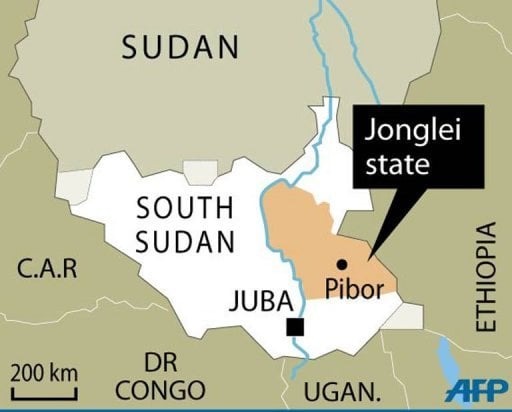 The scenes coming out of Jonglei state of South Sudan are troubling. According to United Nations sources, more than 3,000 people have died and more than 60,000 have fled their home in the two week long ethnic clashes between Murle and Nuer tribes. The scope and the magnitude of such clashes make them unique in many ways. As some argue, this is a test for Salva Kiir’s government and his maturity in leadership.
The scenes coming out of Jonglei state of South Sudan are troubling. According to United Nations sources, more than 3,000 people have died and more than 60,000 have fled their home in the two week long ethnic clashes between Murle and Nuer tribes. The scope and the magnitude of such clashes make them unique in many ways. As some argue, this is a test for Salva Kiir’s government and his maturity in leadership.
Historically, there has been tension between the two groups. Both are pastoralists living in South Sudan and Ethiopia, highly dependent on pastoral farming and large numbers of cattle. Extensive movement crossing each others’ boarders put the two groups in conflict, and there have been clashes with the Dinka, Anuak and other local host communities over land and grazing rights.
For the minority Murle, the small size of their homeland and the near absence of police protection makes them especially vulnerable in conflicts. During the North-South civil war, many Murle sought protection with the majority Nuer against North-Sudanese militia and slave raiders. After the formation of the new republic, the Murle felt threatened by the Nuer, who are relatively educated, outspoken, well connected and well represented in the new government of Salva Kiir.
The Nuer are considered to be amongst the most skilled fighters in Africa. They managed to appease the British Colonial masters and allied themselves with the Southern People Liberation Army (SPLA). Members of the community went on to enjoy sharing power with the current government of Ethiopia, weakening the strength of the majority Anuaks in the Gambella region. They continued to have strong political and military support both in Ethiopia and in the new state.
Currently, a large proportion of the population in Jonglei engage in cyclical migration and are thus affected by resources and a lack of institutional support. An increasing number of young Murle and Nuar are forced to seek alternative source of income- namely cattle raids- to supplement their loses. This instigated the ongoing violence.
Retribution continues to be a common practice, making mending the relationship between the two groups difficult for the new government. The young state has yet to put forth initiatives to promote peaceful resolution to the clashes, or efforts to diversify local sources of income. The new government of Salva Kiir must adopt a developmental approach to stabilizing the population and give vulnerable populations a viable alternative livelihood.
The potential that the accumulation of wealth in this particular area may spread towards populations in neighboring areas must also be considered in understanding the dynamics of the current situation. Ethnically unbalanced development will inevitably lead to further conflict, migration and displacement as external populations try to gain access to new services and resources. This in turn will lead to further deterioration of the security situation.
The new government must look to new ways to partner with diverse groups in order to utilize the enormous agricultural potential of the young state. This may include initiatives to connect Jonglei to regional and world markets, to promote an economy based on agriculture and cattle breeding, not continual theft based on “tit for tat”. Government intervention engaging local leaders in the Nuer, Dinka and Murle societies is needed.